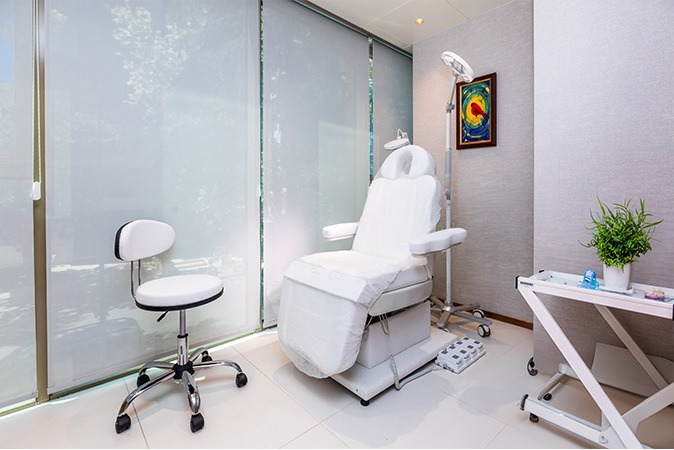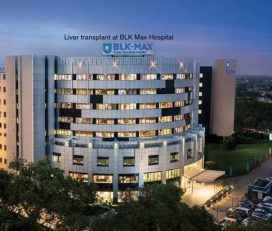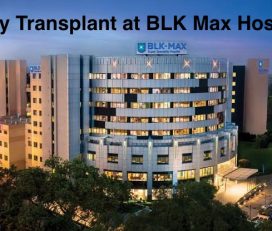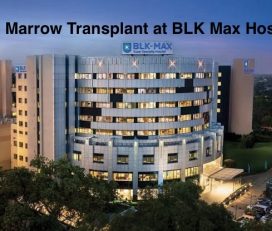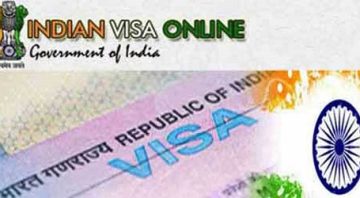
Neurosurgery in Kenya
Wondering if neurosurgery in Kenya is the right treatment option for you or someone you care for? Kenya has few qualified practicing neurosurgeons despite many stroke cases and casualties with brain and spinal cord injuries that overwhelm hospitals in Kenya. In addition, the hospitals have different neurosurgery costs in Kenya. In public hospitals in Kenya, the government sponsors the funding to support more patients accessing the services. After funding the price of neurosurgery in Kenya, the patient must pay about Ksh 30,000.
In Kenya, most patients are accident victims who lack the money to pay for reasonable medical expenses. The best hospitals in Kenya have well-qualified neurological surgeons and top-notch technology and infrastructure like Intraoperative Ultrasound evaluation, Neuron avigation for brain mapping, and Neuromonitoring technology.
Even though the surgery is mainly done in private hospitals and is not readily available to the people of Kenya, neurosurgery in Kenya is also increasingly accessible in public hospitals across the country. As a result, it has a high success rate of neurosurgeries in Kenya, and the best treatments indicate the quality and low-priced health services provided to its people. But unfortunately, Head and spine traumas due to accidents and assault account for 60-70 percent of the patients treated in Kenya regularly. At expertchikitsa.com, we provide all information about neurosurgery in Kenya and get cost estimations here!
Neurosurgery Cost in Kenya
The patient who does not have a subsidy must pay about 500000- 1 million Ksh in Kenya. The neurosurgery cost may vary from one hospital to another in Kenya’s private hospitals. With the subsidy, the treatment of patients will be between Sh50,000 and Sh100,000 and funded by National Hospital Insurance Fund (NHIF) in Kenya. The cost of neurosurgery in Kenya is typically from Sh500,000 to Sh1 million.
Neurosurgery Cost in Kenya
| Neurosurgery in Kenya | Average Cost in USD | Average Cost in Kenya Shilling (KES) |
| BT Shunt | $6,509 | Ksh 781,056 |
| Brachial Plexus Injuries | $5,695 | Ksh 683,424 |
| Brain Aneurysm Repair | $5,153 | Ksh 618,336 |
| Brain Tumor Surgery | $5,831 | Ksh 699,696 |
| Burr-Hole Aspiration for Abscess | $6,102 | Ksh 732,240 |
| Carpal Tunnel Release Surgery | $6,238 | Ksh 748,512 |
| Cerebral Aneurysm | $5,017 | Ksh 602,064 |
| Cerebral Spinal Fluid Shunt Procedures | $7,865 | Ksh 943,776 |
| Chronic Sub-dural Haematoma | $5,153 | Ksh 618,336 |
| Stereotactic Procedures | $6,034 | Ksh 724,104 |
| Cranioplasty | $6,509 | Ksh 781,056 |
| Craniotomy | $6,238 | Ksh 748,512 |
| Gamma Knife | $5,017 | Ksh 602,064 |
| Glial Tumor Removal | $7,865 | Ksh 943,776 |
| Hydrocephalus | $5,153 | Ksh 618,336 |
| Peripheral Nerve Surgery | $6,034 | Ksh 724,104 |
| Trans sphenoid operations | $6,509 | Ksh 781,056 |
| VP Shunt Surgery | $6,170 | Ksh 740,376 |
What is Neurosurgery?
Neurosurgery or neurological surgery, also referred to as brain surgery, is a disciple of the medical field involved with the prevention, diagnosis, and surgical treatment of disorders of the nervous system. It encompasses the cerebrovascular, brain, spinal cord, and central and peripheral nervous systems.
Neurosurgery’s primary purpose is to cure problems without disrupting the brain’s essential functions. Brain surgery and procedures are conducted by neurosurgeons who can treat and diagnose the brain, spinal cord, nerves, and supporting tissues and structures.
Neurosurgeons Treatments in Kenya
The necessary neurologic conditions a neurosurgeon treat is:
-Brain tumors
-Carpal tunnel syndrome
-Cerebrospinal fluid (CSF) leak
-Chronic pain in your back or neck
-Congenital brain conditions, e.g., Chiari malformations and arachnoid cysts
-Congenital spinal column conditions, e.g., spina bifida and tethered spinal cord
-Essential tremor
-Herniated disks
-Hydrocephalus
-Intracranial aneurysms
-Multiple sclerosis (MS)
-Parkinson’s disease
-Pinched nerves
-Sciatica
-Seizure disorders, e.g., epilepsy
-Bone spurs in the spinal (osteophytes)
-Spinal stenosis
-Fractures in the backbone
-Tumors of spinal
-Deformities in the backbone, like scoliosis and spondylolisthesis
-Traumatic head, brain, neck, or spine injuries
Different Types of Neurosurgery
-BT Shunt: A brain shunt is a small portion of a tubing implanted into the brain in the fluid-filled ventricle. The tubing is transferred under the skin in a different body area, that is, into the abdomen. The shunt tubing reduces the pressure on the brain, known as hydrocephalus, draining the extra fluid in the brain ventricle(s) to another portion of the body so it can be absorbed faster. The types of shunt are hydrocephalus, Ventriculo-Pleural, Ventriculo-Atrial, etc. The BT Shunt cost in Kenya is Ksh 781,056 and $6,509, whereas Hydrocephalus neurosurgery prices in Kenya are Ksh 618,336 (USD 5,153).
-VP Shunt Surgery or Ventriculo-Peritoneal: The VP shunt tube goes from the ventricle in the brain to the abdominal cavity. The VP Shunt Surgery price in Kenya is Ksh 740,376 and $6,170 in USD.
-Burr-Hole Aspiration for Abscess: This is an essential treatment for subdural hematomas that form after a few days or weeks of a minor head injury (chronic subdural hematomas. In the procedure, one or more tiny holes are penetrated in the skull and a flexible rubber tube is injected to drain the hematoma. The Burr-Hole Aspiration for Abscess surgery price in Kenya is Ksh 732,240 and USD 6,102.
-Carpal Tunnel Release Surgery: A carpal tunnel release is a surgery for treating and potentially healing the painful condition referred to as carpal tunnel syndrome. Carpal tunnel syndrome is caused by an overdoing the injury or in the same motion made by the wrist or hand regularly at work. The carpal tunnel release surgery cost in Kenya is around Ksh 748,512, and the average price is $6,238.
-Cerebral Aneurysm: An aneurysm known as a cerebral aneurysm or intracranial aneurysm is a swelling in the weakened section in the middle layer of the blood vessel wall in the brain that forms an abnormal widening. It may happen in any artery but is mainly seen in the brain artery. E.g., The Brain Aneurysm Repair neurosurgery cost in Kenya is Ksh 618,336 and USD 5,153 while the Cerebral Aneurysm neurosurgery price in Kenya is Ksh 602,064 ($5,017USD).
-Cerebral Spinal Fluid Shunt Procedures: The CSF Diversionary Procedures a variety of conditions obstructs the brain’s cerebrospinal fluid (CSF). The accumulation of fluid within the brain can cause pressure. Intraventricular catheterization (IVC), external ventricular drainage (EVD), shunts (ventriculoperitoneal, ventriculopleural, or ventriculoatrial), ventricular access device or third ventriculostomy are used to drain away from the fluid in the brain and reduces the pressure. The Cerebral Spinal Fluid Shunt Procedures neurosurgery cost in Kenya is Ksh 943,776 and in USD is $7,865.
-Chronic Subdural Hematoma: (CSDH) is a most common neurosurgical state where the collection of blood on the brain’s surface, beneath the outer covering of the brain (dura). The lasting stage of a subdural hematoma starts several weeks after the first bleeding. The chronic subdural hematoma surgery cost in Kenya is Ksh 618,336 and USD 5,153.
-Stereotactic Procedures or neurosurgery: Stereotactic surgery makes a 3D representation of the brain using scans and computer technology. It helps the neurosurgeon to precisely target the operation in the brain. Stereotactic radiosurgery is mostly used combined with radiation therapy to cure tumors or AVM. Radio surgical techniques comprise gamma knife and cyber knife systems. The Gamma Knife neurosurgery cost in Kenya is Ksh 602,064($5,017), and the Stereotactic Procedures price in Kenya is Ksh 724,104 and USD 6,034.
-Cranioplasty: Cranioplasty is a neurosurgical procedure used to correct skull abnormalities. The Deformity or abnormalities are caused by inheritance, trauma, or a complication after surgery. The Cranioplasty Neurosurgery cost in Kenya is Ksh 781,056, while in USD is $6,509.
-Craniotomy: Craniotomy is also known as open brain surgery or brain tumor surgery. Brain surgery is a procedure where the block of bone is taken out using special tools to access the brain. The extracted bone is changed in its place once the neurosurgery is completed. E.g., Glial tumor removal is a type of craniotomy surgery used to remove gliomas. The glial tumor removal and craniotomy neurosurgery costs in Kenya are Ksh 943,776 ($7,865) and Ksh 748,51($6,238), respectively. In addition, Brain Tumor Surgery price in Kenya is Ksh 699,696 and USD 5,831.
-Peripheral Nerve Surgery: Peripheral nerve surgery is done to enhance the function and lessen the pain and disability of peripheral nerve disorders, like acute nerve injuries, entrapment neuropathies, and nerve sheath tumors. It involves redirecting healthy nerves to capture the function of the nerves affected by any injury, disease, or condition.
E.g., Traumatic nerve injury, Spinal accessory nerve injury, and Brachial Plexus Injuries are a network of nerves that gives signals from the spinal cord to the shoulder, arm, and hand. Neurosurgery contains nerve repair, neurolysis, nerve graft, nerve transfer, tendon, and muscle transfers. The brachial plexus surgery cost in Kenya is Ksh 683,424 ($5,695); however, the Peripheral Nerve Surgery price in Kenya is Ksh 724,104 ($6,034).
-Trans sphenoid operations: In this surgery for a brain tumor, the procedure is carried out via a nose, and no operation is performed in the skull. It helps cure tumors that are easily reachable through the nose, like pituitary gland tumors. Trans sphenoid operations cost in Kenya are Ksh 781,056 and USD 6,509.
–Deep brain stimulation (DBS). A medical device operating on a battery known as an implantable pulse generator is fitted to the brain to send electrical stimulation to definite areas. DBS is used for movement conditions such as Parkinson’s disease.
How to Prepare for Neurosurgery in Kenya?
Before Neurosurgery
The neurosurgeons suggest some physical examination and blood tests for neurosurgery. Then, Neurosurgeons ensure they are healthy enough for anesthesia and neurosurgery.
Then a wide range of imaging exams includes MRIs, CT scans, PET scans, or angiography. Finally, the neurosurgeons advise patients on certain medications to start and stop after the surgery.
These imaging scans for the brain produce highly detailed pictures of the tissues, nerves, and blood vessels. It helps the neurosurgeons to detect the exact areas that require surgery.
During Neurosurgery
Occasionally the surgical team has to remove the area of hair from your head that is operating, or sometimes they shave a small space to make an incision.
During some surgeries, you may even be conscious in surgery, for example, in the case of some tumors, epilepsy, and neurological conditions.
After the Neurosurgery
After your surgery, a patient is under observation by neurosurgeons. For less invasive complex surgeries like endovascular surgery, one has to stay for one to two days. But for open craniotomy or open brain surgery, one must stay for up to 10 days in the hospital.
The surgeons will give you steroids or anti-seizure medications to avoid brain swelling and seizures. Patients also need neurorehabilitation to bring back certain functions in the body.
Rehabilitation helps regain strength, mobility, speaking skills, and the ability to perform day-to-day activities if required by the patient.
What are the Risks of Neurosurgery?
The risk of neurosurgery is bleeding, infection, or reactions to anesthesia. While there are further side effects that can happen immediately after the surgery are
-Aphasia (a problem with speaking).
-Swelling in the brain
-Confusion or delirium
-Dizziness
-Pain in the head
-Difficulty in movement or balance
And long-term side-effects after neurosurgery consist of:
-Changes in the behavior
-Brain damage
-A problem with walking
-Loss of memory
-Difficulty in speech
-Weakness in the arms or legs of your body.
What are the Advantages of Neurosurgery?
-Neurosurgery is a procedure that helps in saving a life.
-It helps cure strokes, brain bleeds, tumors, and other serious medical issues related to the brain.
-New technology like less invasive procedures in brain surgery is accessible that help decrease the risks of complications.
Summary of Neurosurgery in Kenya
Searching for the best neurosurgery in Kenya and the best neurosurgeons, then check every detail and plan before going for it and talk to your doctors.
The most significant complication with brain surgery like loss of function, for example, the ability to speak, walk or think. In addition, some people require rehabilitation after surgery to recover the function and movement of the body.
FAQs About Neurosurgery in Kenya
What is the recovery process from neurosurgery?
– It will take weeks to recover from more minimal invasive brain surgeries and take months for you to cure major neurosurgery like a craniotomy.
How much time does neurosurgery take?
-It can take from two to nine hours or more, depending on how complex is the of your surgery.
What is the most challenging neurosurgery?
– Arteriovenous malformations (AVM) are the most challenging and complex neurosurgery.
Does the skull grow back after the neurosurgery?
-Will fill the missing piece of the skull with your original bone, a metal plate, and synthetic material.
When can a patient wash their hair after the neurosurgery?
-A patient can shower, and the incision area can become wet after 3-5 days of the surgery. Use gentle shampoo hair but do not directly scrub the incision area for 2-3 weeks after surgery.





